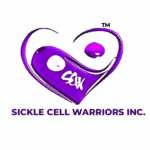 In scouring the last fortnight of sickle cell news, it looks like quite a few more strides have been made to cure and reduce the sickling associated with sickle cell disease. Detailed below is a brief synopsis of the highlights.
In scouring the last fortnight of sickle cell news, it looks like quite a few more strides have been made to cure and reduce the sickling associated with sickle cell disease. Detailed below is a brief synopsis of the highlights.
The first news worthy event is by GlycoMimetics, who have entered into the Phase 2 testing of their sickle cell drug, GMI-1070 which is purported to stop a vaso-occlusive crises. So I guess this means that once a sickle cell patient is in full crises, this medication can reverse the sickling process and stop a crises. Good news on the horizon indeed. Read more about it HERE.
In the University of Birmingham, researchers have taken another great stride in the human genome project towards curing sickle cell. UAB just purchased a device that will allow them to grow skin cells into stem cells which can then be used for BMT. In 2007, the researchers led by Tim Towne showed the ability to cure sickle cell in mice from human-grown stem cells, and this device will allow them to grow and modify the skin cells at a faster rate than before. Although it is still years away from completion, this offers hope that in the next few years, sickle cell patients will be able to have their sickle cell reversed, from their own stem cells. This means there will be no rejection issues…awesome stuff. Read more about it HERE.
TIME magazine published an article recently about Project Cord Kit, a new system which allows pregnant women to donate the cord blood of their offspring to anyone. The database is being created kinda like the National BMT Registry. Previously, women could only donate and use the cord blood in their direct family and they had to deliver in the child in one of the 175 centers that harvested cord blood. Many of the women had to pay out of pocket for this service, and it cost anywhere from upwards of $2000. With Project Cord Kit, the cost is absorbed by the government and certain banks and then passed on to the insurance company of the receiver. This means that in the future, there might be a possibility of a match with the cord blood of an anonymous donor, which is especially helpful to minorities and multi-racial people who find it hard to match donors. Read the full article HERE.
The final piece of news just came out today. La Jolla Institute and Washington University have just teamed up to test a new drug called Lexiscan (regadenoson). “We will be testing the ability of Lexiscan to reduce inflammation that contributes to the poor blood flow and serious complications characteristic of sickle cell disease,” said the La Jolla Institute’s Joel Linden, Ph.D., a prominent scientist whose research laid the groundwork for the trial. If this works, it has the potential of reducing the inflammation that occurs with acute chest syndrome and pulmonary hypertension. Read more about Lexiscan HERE.
